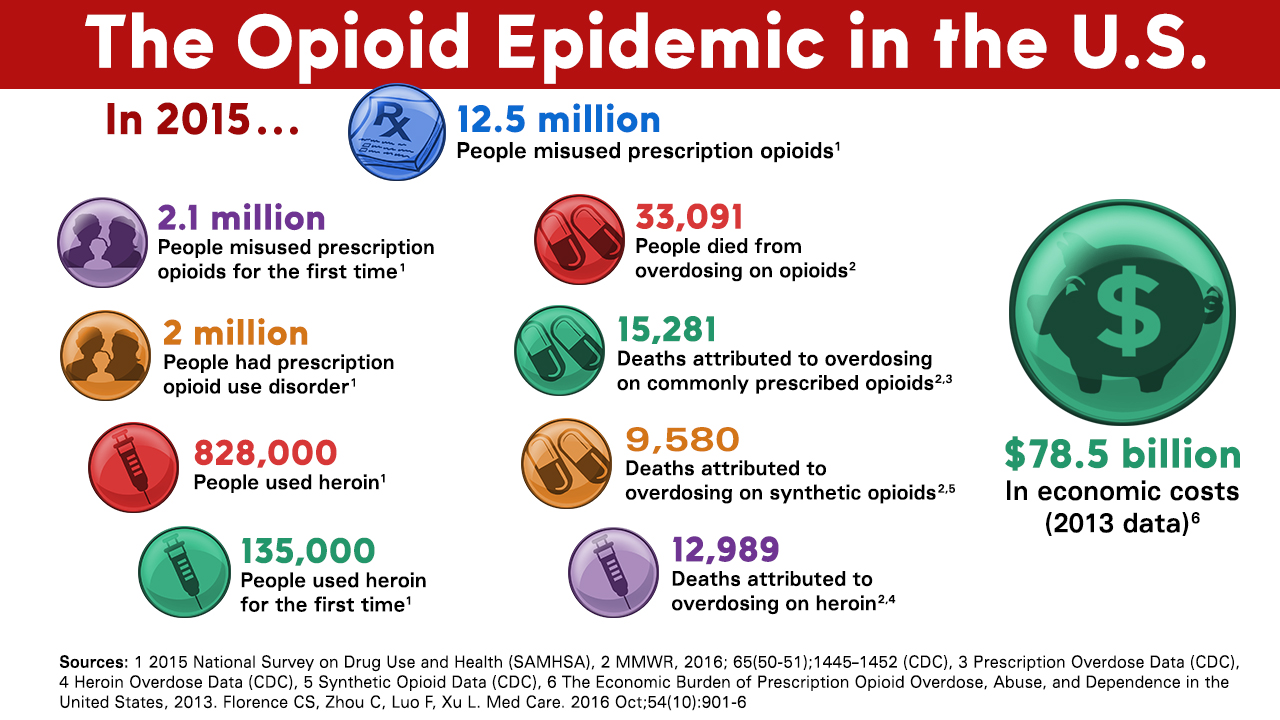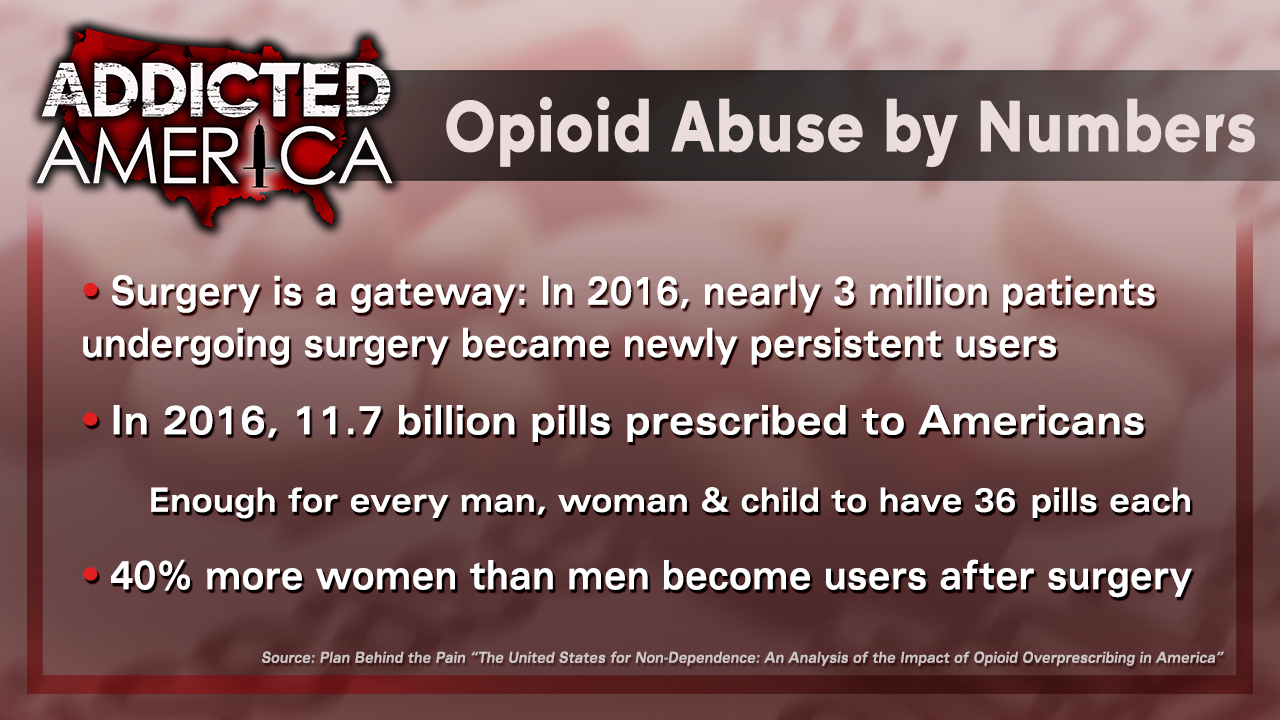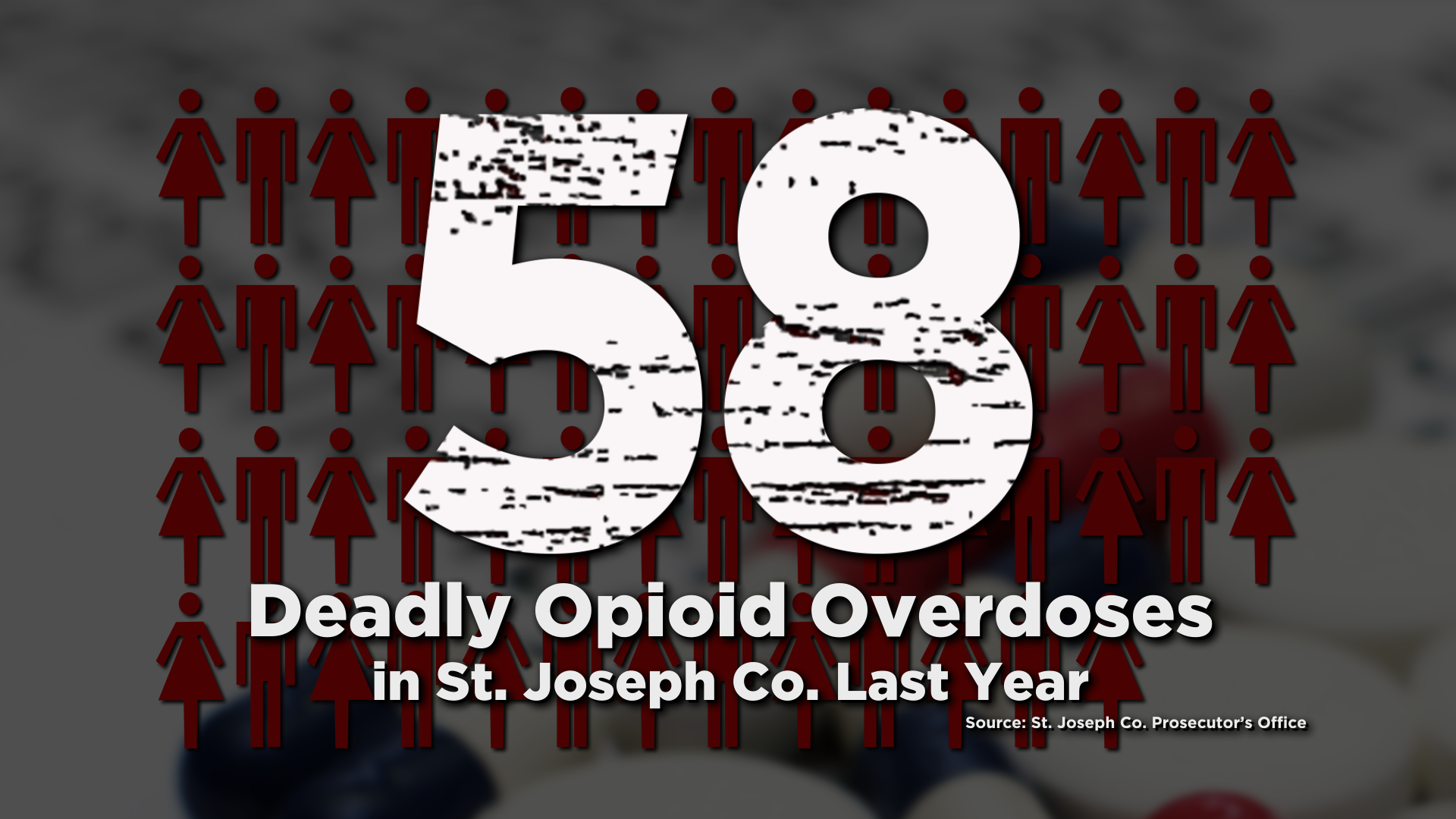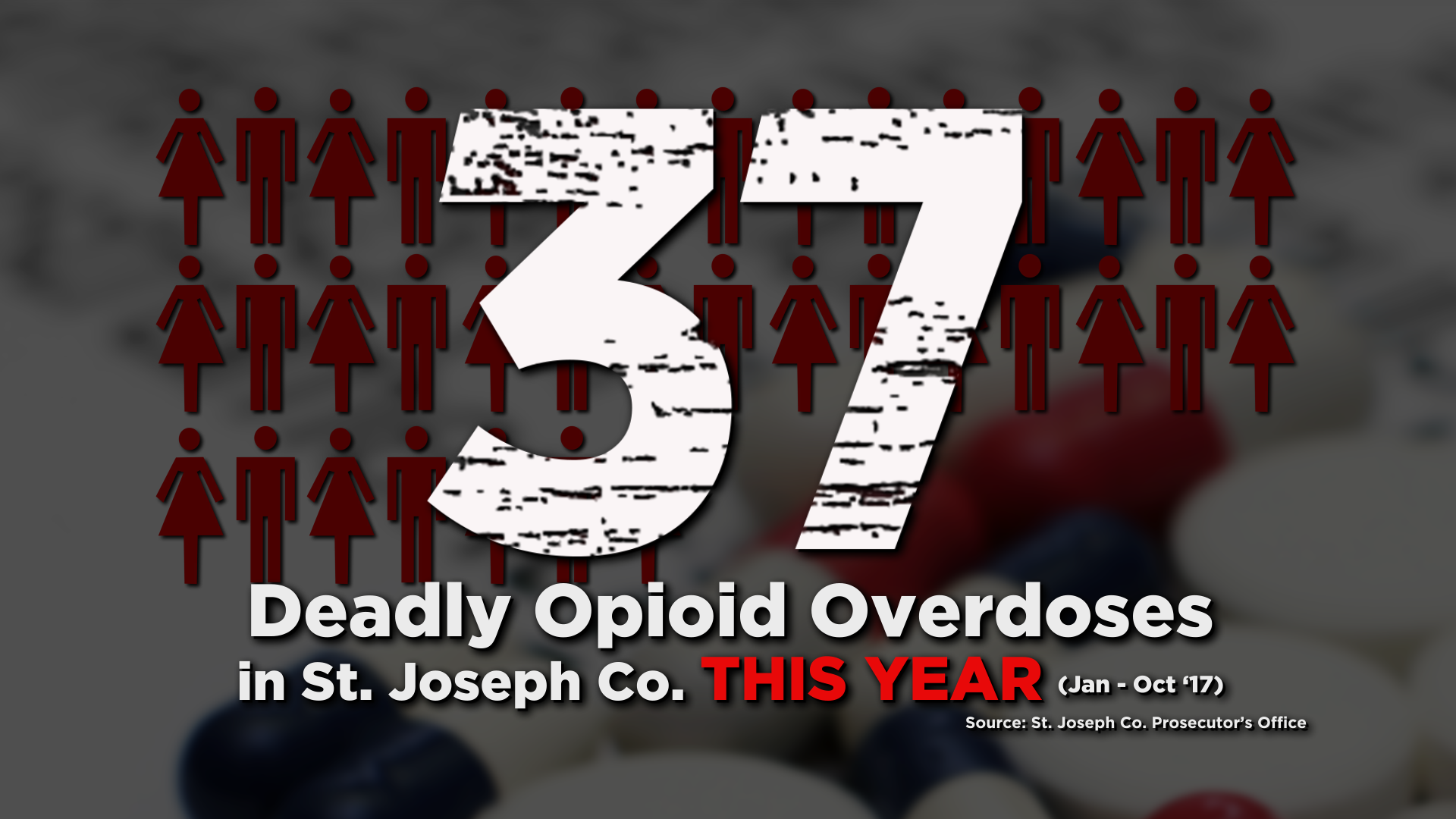Fighting on the Frontlines: Law enforcement working to tackle the opioid crisis
The number of deadly opioid overdoses in St. Joseph County last year: 58.
The number of people who have died since January in opioid overdoses this year alone in St. Joseph County: 37.
Officers patrolling our neighborhoods are calling painkillers the new lethal weapon.
“People down in cars, people down in alleys, people that have just passed out. We may see some paraphernalia, you may see a spoon, you may see a packet of something that could have been something, we come to realize that it may be an opioid overdose.” said South Bend Police Officer Paul Daley.
South Bend police officers are on the frontlines of Americas’ biggest drug problem.
With the opioid crisis taking tens of thousands of lives every year across the country South Bend cops say their streets are no stranger to the epidemic either.
Officers on the graveyard shift say they’re looking the problem dead in the eye almost every night. They’re seeing people passed out after shooting up or from popping too many pills.
“We do see overdoses on our shift probably one or two a rotation,” said Daley.
“I can go a rotation or two without it and then sometimes I’ll go through two, three, four Narcans. I’ve used two on one scene before,” said South Bend Police Officer Kyle Brownfield.
Last year South Bend police officers had to administer 37 doses of Narcan on the scene to keep users from overdosing.
“It’s an incredibly dangerous road to go down. It’s becoming more and more dangerous as time goes by,” said Brownfield.
But officers like Kyle Brownfield are no longer just carrying it for others, they’re carrying it in case they need it too.
“You don’t know what it’s cut with and I mean there’s been numerous cases where officers have gotten hurt overdosing on a scene trying to help a patient because this stuff is so dangerous. The product that’s hitting the streets are just becoming lethal,” said Brownfield.
“Up until maybe four years ago we did not have the number of overdoses, and we certainly did not have the number of overdose deaths that we have now,” said Amy Cressy, St. Joseph County Deputy Prosecutor.
Cressy works directly with the county’s drug investigation unit which was formed in 2016 around the same time the number of reported addictions skyrocketed.
“We have six police officers from the South Bend Police Department, we have a Mishawaka Police officer and a County Police officer and we all work together very focused on investigating overdose fatalities and armed and violent drug trafficking,” said Cressy.
She and Commander Dave Wells who heads the task force say the fight is much harder for first responders across St. Joseph County because South Bend has become a hub for drugs coming in from larger regional cities.
“If you think of it in geographical terms, you have South Bend, to the West you have Chicago, to the East you have Detroit, to the South you have Indianapolis. We have people come from all over to South Bend get their drugs; Warsaw, Knox, Rochester, this is where people come because this is where its being sold, this is where its set up,” said Wells.
The DIU says it’s making headway getting drugs off the streets but the battle is far from over. So Wells is working to attack the issue at the root.
“Our job is to find the sources, identify those people and arrest them but that’s just one facet of it,” said Wells.
But police say it can be difficult identifying the dealer and the addict.
“Anybody that’s addicted to these drugs can do it, from your soccer moms to your coaches to your factory workers to all kinds of people you don’t really know who it is,” said Daley.
“I was a South Bend policeman for 21 years. Back when I was on the street, it was weed or crack cocaine, never saw heroin and heroin was always kind of like a dirty drug that you thought of like rock ‘n’ rollers took or somebody in an alley took, now it’s kids using heroin, people in suits are using heroin just to get through their day,” said Wells.
And it’s especially difficult today because it’s not only new, illegal substances.
“You have a lot of grandparents who may be on medicines, and even though you may trust your kids, here’s an old container in the medicine cabinet when I’m using your bathroom because I’m over visiting and the next thing you know a handful are missing. If you have a 30 milligram pain pill, you can get 30 bucks per pill,” said Wells.
And that’s when those medications can end up on the streets and in dealers’ hands.
“With DIU cases, especially the ones that are related to overdose fatalities, we consider those ‘Tier 1 Targets’,” said Cressy.
But drug investigators say not for long.
“We make a case on them, we charge them and there are no plea offers. We don’t play around. When it’s someone who’s making money off the suffering of others, off the deaths of others and they don’t care, they get no quarter from our office, we go after them with everything we have. That’s the way we go,” said Cressy.
The Drug Investigation Unit and South Bend Police are asking for your help by taking any pills you have lying around and drop them in their pill boxes. You can find these pill drops at the South Bend Police Department, Mishawaka Police Department, and County Police Department, no questions asked.


















